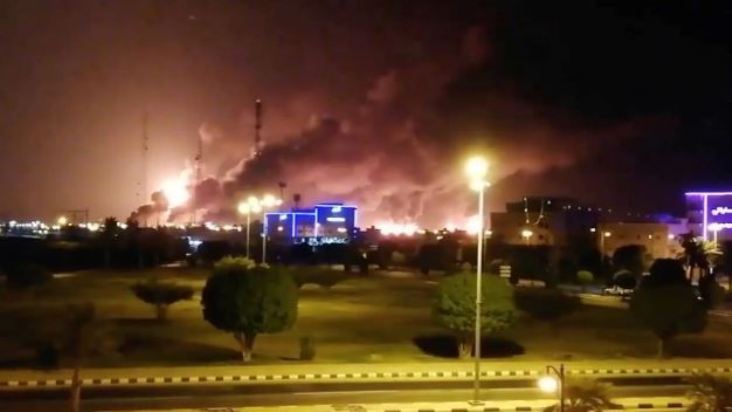
Saudi Arabia said it would show evidence on Wednesday linking regional rival Tehran to an unprecedented attack on its oil industry that Washington believes originated from Iran in a dangerous escalation of Middle East frictions.
Tehran has denied involvement in the Sept. 14 attacks on oil plants, including the world’s biggest crude processing facility, that initially knocked out half of Saudi Arabia’s production.
“We don’t want conflict in the region … Who started the conflict?” Iran’s President Hassan Rouhani said on Wednesday, blaming Washington and Riyadh for war in Yemen.
Yemen’s Houthi group, an ally of Iran, has claimed responsibility and said they used drones to assault state oil company Aramco’s sites.
Secretary of State Mike Pompeo and other U.S. officials were headed to Saudi Arabia. United Nations experts monitoring sanctions on Iran and Yemen also left for the kingdom, Saudi’s U.N. envoy told Reuters.
Concrete evidence showing Iranian responsibility, if made public, could pressure Riyadh and Washington into a response, though U.S. President Donald Trump said he does not want war.
The Saudi Defense Ministry said it will hold a news conference on Wednesday at 1430 GMT to present “material evidence and Iranian weapons proving the Iranian regime’s involvement in the terrorist attack”. Riyadh has already said preliminary results showed the attack did not come from Yemen.
A U.S. official told Reuters the strikes originated in southwestern Iran. Three officials said they involved cruise missiles and drones, indicating a higher degree of complexity and sophistication than initially thought.
The officials did not provide evidence or explain what U.S. intelligence they were using for the evaluations.
Some U.S. allies, as well as those of Iran, have asked for proof behind accusations Tehran was responsible for the attack that cut 5% of global production. Saudi Arabia, the world’s top oil exporter, said on Tuesday the 5.7 million barrels per day of output would be fully restored by the end of the month.
Oil prices fell after the Saudi reassurances, having surged more than 20% at one point on Monday – the biggest intra-day jump since the 1990-91 Gulf War.
Illustrating international caution on such an inflammatory issue, Japan’s new defense chief said Tokyo has not seen any intelligence that shows Iran was involved.
